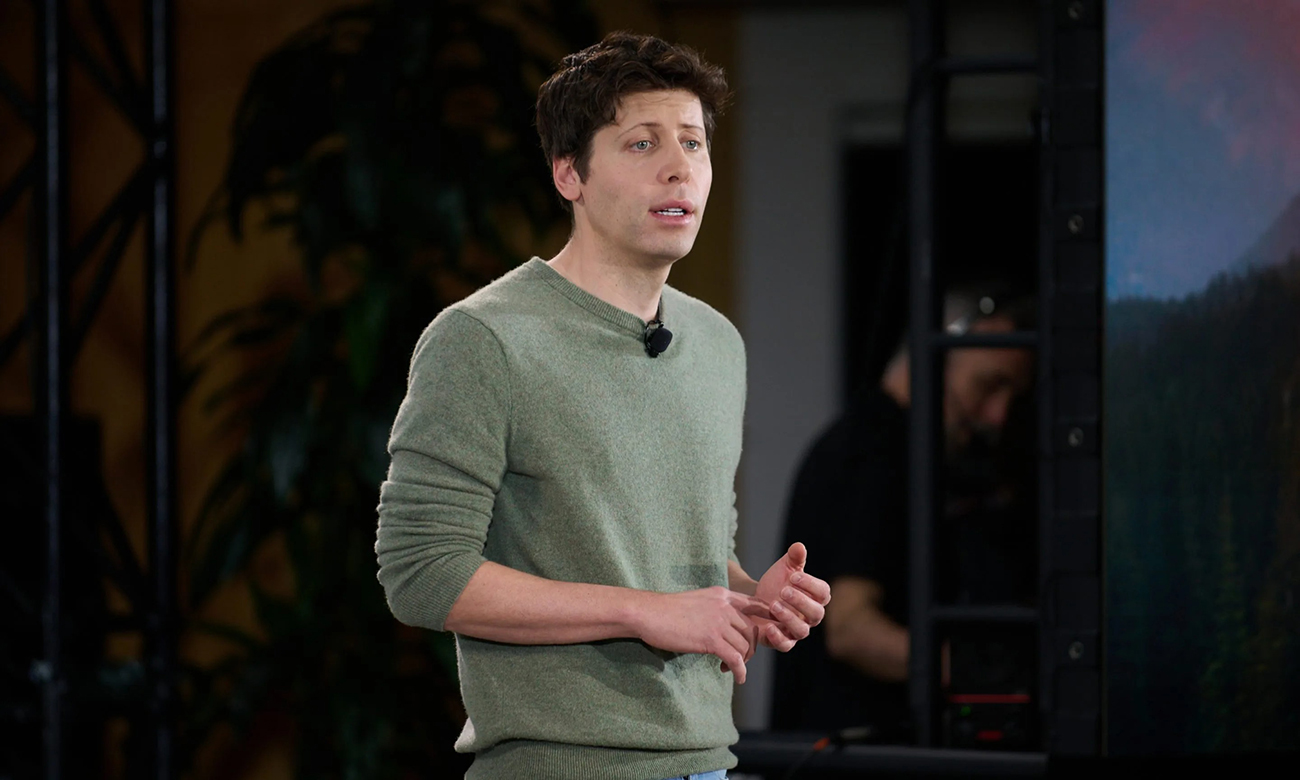
說起人工智能及其對人類的最終影響,很少有人能比開發出ChatGPT的OpenAI首席執行官薩姆·奧特曼思考更深刻。所以,當奧特曼表示擔心“后世會如何看待我們”時,這就值得關注了。
上周末,奧特曼在一系列推文中分享了對當前人工智能技術,以及今后新工具可能造成危險的看法。
最近ChatGPT讓不少人很是吃驚,特別是ChatGPT版必應,因為人工智能提出的建議和評論有時令人不安,OpenAI和微軟(Microsoft)只得努力安撫公眾,盡力解釋清楚該技術。
奧特曼似乎并不擔心現在的ChatGPT,而是更關心今后。他在推特(Twitter)上寫道,“雖然這一代人工智能工具并不可怕,但可怕的人工智能可能已經距離我們不遠了”。
他似乎特別關注時間,預測人工智能工具很快將融入社會,而全世界需要時間適應。
他寫道,“人們可能很快就要適應與人工智能工具深度融合的世界;好處(和樂趣!)有很多。機構也需要充足的時間了解具體該做什么。監管至關重要,也需要時間弄清楚……理解當前發生的事,了解人們希望如何使用工具,以及社會如何同步發展。”
他也想到后代將如何回顧歷史中的此刻以及現在做出的決定,他似乎希望獲得一些理解和原諒。
“希望每代人都能寬容對待前面幾代,”他寫道。“人類有很多不完美之處。我們的祖父輩就做過可怕的事;孫輩會明白我們因為不夠了解而做了一些可怕的事。”
“我們的前輩當中有好人也有壞人,”他繼續寫道,“他們共同推動了世界向前發展;將社會道德進步當成所有人都要負責的持續聯合項目很重要。現在輪到我們了。希望未來的人能以同樣的方式看待我們。”
上周,特斯拉(Tesla)首席執行官埃隆·馬斯克有意遠離了OpenAI。2015年,他曾出資幫助創立當時作為非盈利組織的OpenAI。近年來,微軟向OpenAI大筆投資,上個月表示將投入更多資金。
上周五馬斯克發布推文稱,“OpenAI成立之處是開源的(這也是我為何起名為“開放”人工智能),是非盈利公司,目標在于制衡谷歌(Google)。如今卻成為由微軟實際控制的閉源,追求利潤最大化的公司。這完全違背了我的初心。”(財富中文網)
譯者:夏林
說起人工智能及其對人類的最終影響,很少有人能比開發出ChatGPT的OpenAI首席執行官薩姆·奧特曼思考更深刻。所以,當奧特曼表示擔心“后世會如何看待我們”時,這就值得關注了。
上周末,奧特曼在一系列推文中分享了對當前人工智能技術,以及今后新工具可能造成危險的看法。
最近ChatGPT讓不少人很是吃驚,特別是ChatGPT版必應,因為人工智能提出的建議和評論有時令人不安,OpenAI和微軟(Microsoft)只得努力安撫公眾,盡力解釋清楚該技術。
奧特曼似乎并不擔心現在的ChatGPT,而是更關心今后。他在推特(Twitter)上寫道,“雖然這一代人工智能工具并不可怕,但可怕的人工智能可能已經距離我們不遠了”。
他似乎特別關注時間,預測人工智能工具很快將融入社會,而全世界需要時間適應。
他寫道,“人們可能很快就要適應與人工智能工具深度融合的世界;好處(和樂趣!)有很多。機構也需要充足的時間了解具體該做什么。監管至關重要,也需要時間弄清楚……理解當前發生的事,了解人們希望如何使用工具,以及社會如何同步發展。”
他也想到后代將如何回顧歷史中的此刻以及現在做出的決定,他似乎希望獲得一些理解和原諒。
“希望每代人都能寬容對待前面幾代,”他寫道。“人類有很多不完美之處。我們的祖父輩就做過可怕的事;孫輩會明白我們因為不夠了解而做了一些可怕的事。”
“我們的前輩當中有好人也有壞人,”他繼續寫道,“他們共同推動了世界向前發展;將社會道德進步當成所有人都要負責的持續聯合項目很重要。現在輪到我們了。希望未來的人能以同樣的方式看待我們。”
上周,特斯拉(Tesla)首席執行官埃隆·馬斯克有意遠離了OpenAI。2015年,他曾出資幫助創立當時作為非盈利組織的OpenAI。近年來,微軟向OpenAI大筆投資,上個月表示將投入更多資金。
上周五馬斯克發布推文稱,“OpenAI成立之處是開源的(這也是我為何起名為“開放”人工智能),是非盈利公司,目標在于制衡谷歌(Google)。如今卻成為由微軟實際控制的閉源,追求利潤最大化的公司。這完全違背了我的初心。”(財富中文網)
譯者:夏林
Few people think about artificial intelligence and its ultimate impact on humanity more than Sam Altman, CEO of ChatGPT maker OpenAI. So when Altman worries about “how people of the future will view us,” it’s worth paying attention.
In a series of tweets this weekend, Altman shared his thoughts on the dangers posed by current A.I. technology—and by the tools that will follow in the years ahead.
ChatGPT has been freaking some people out of late—particularly the ChatGPT-powered Bing, whose at times unsettling suggestions and comments have prompted OpenAI and Microsoft to try to reassure the public and better explain the technology.
Altman doesn’t seem concerned about today’s ChatGPT, but rather what’s next. He tweeted, “although current-generation AI tools aren’t very scary, I think we are potentially not that far away from potentially scary ones.”
He seemed preoccupied with time, predicting that the integration of A.I. tools into society will happen quickly—and the world needs time to adjust.
He wrote, “the adaptation to a world deeply integrated with AI tools is probably going to happen pretty quickly; the benefits (and fun!) have too much upside. We also need enough time for our institutions to figure out what to do. Regulation will be critical and will take time to figure out…having time to understand what’s happening, how people want to use these tools, and how society can co-evolve is critical.”
His thoughts also turned to how future generations will look back on this point of history and the decisions being made now—and he seemed to hope for some understanding and forgiveness.
“I wish that all generations would treat previous generations with indulgence,” he wrote. “Humanity is deeply imperfect. Our grandparents did horrible things; our grandchildren will understand that we did horrible things we don’t yet understand.”
“The people who came before us are a complete package of good and bad,” he continued, “and collectively they pushed the world forward; it’s important to view the moral progress of society as an ongoing joint project we are all responsible for. Now it’s our turn. I hope the people of the future will view us the same way.”
This week, Tesla CEO Elon Musk distanced himself from OpenAI, which he helped fund and establish as a nonprofit in 2015. Microsoft has invested heavily in OpenAI in recent years and last month indicated it will sink even more money into the venture.
On Friday, Musk tweeted, “OpenAI was created as an open source (which is why I named it “Open” AI), non-profit company to serve as a counterweight to Google, but now it has become a closed source, maximum-profit company effectively controlled by Microsoft. Not what I intended at all.”






